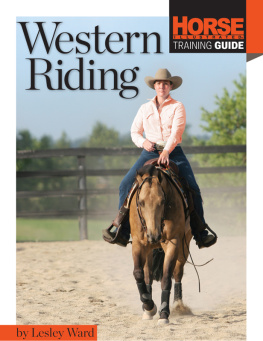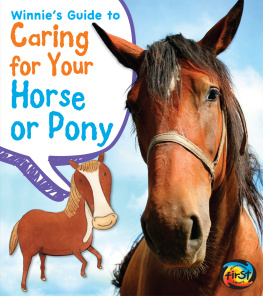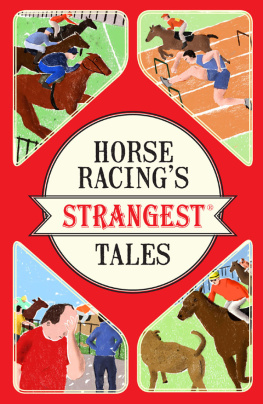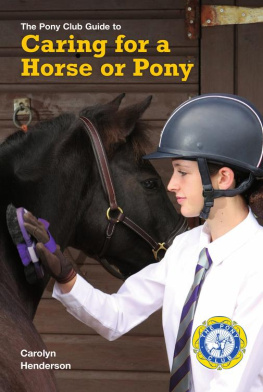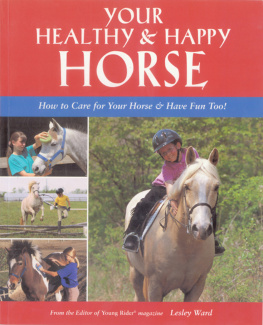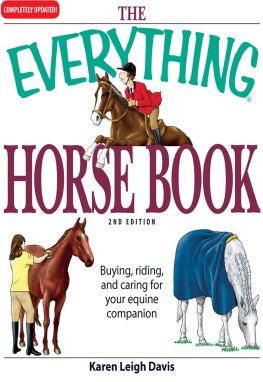Lesley Ward - Caring for Your Horse
Here you can read online Lesley Ward - Caring for Your Horse full text of the book (entire story) in english for free. Download pdf and epub, get meaning, cover and reviews about this ebook. year: 2011, publisher: Fox Chapel Publishing, genre: Children. Description of the work, (preface) as well as reviews are available. Best literature library LitArk.com created for fans of good reading and offers a wide selection of genres:
Romance novel
Science fiction
Adventure
Detective
Science
History
Home and family
Prose
Art
Politics
Computer
Non-fiction
Religion
Business
Children
Humor
Choose a favorite category and find really read worthwhile books. Enjoy immersion in the world of imagination, feel the emotions of the characters or learn something new for yourself, make an fascinating discovery.
- Book:Caring for Your Horse
- Author:
- Publisher:Fox Chapel Publishing
- Genre:
- Year:2011
- Rating:5 / 5
- Favourites:Add to favourites
- Your mark:
- 100
- 1
- 2
- 3
- 4
- 5
Caring for Your Horse: summary, description and annotation
We offer to read an annotation, description, summary or preface (depends on what the author of the book "Caring for Your Horse" wrote himself). If you haven't found the necessary information about the book — write in the comments, we will try to find it.
Lesley Ward: author's other books
Who wrote Caring for Your Horse? Find out the surname, the name of the author of the book and a list of all author's works by series.
Caring for Your Horse — read online for free the complete book (whole text) full work
Below is the text of the book, divided by pages. System saving the place of the last page read, allows you to conveniently read the book "Caring for Your Horse" online for free, without having to search again every time where you left off. Put a bookmark, and you can go to the page where you finished reading at any time.
Font size:
Interval:
Bookmark:
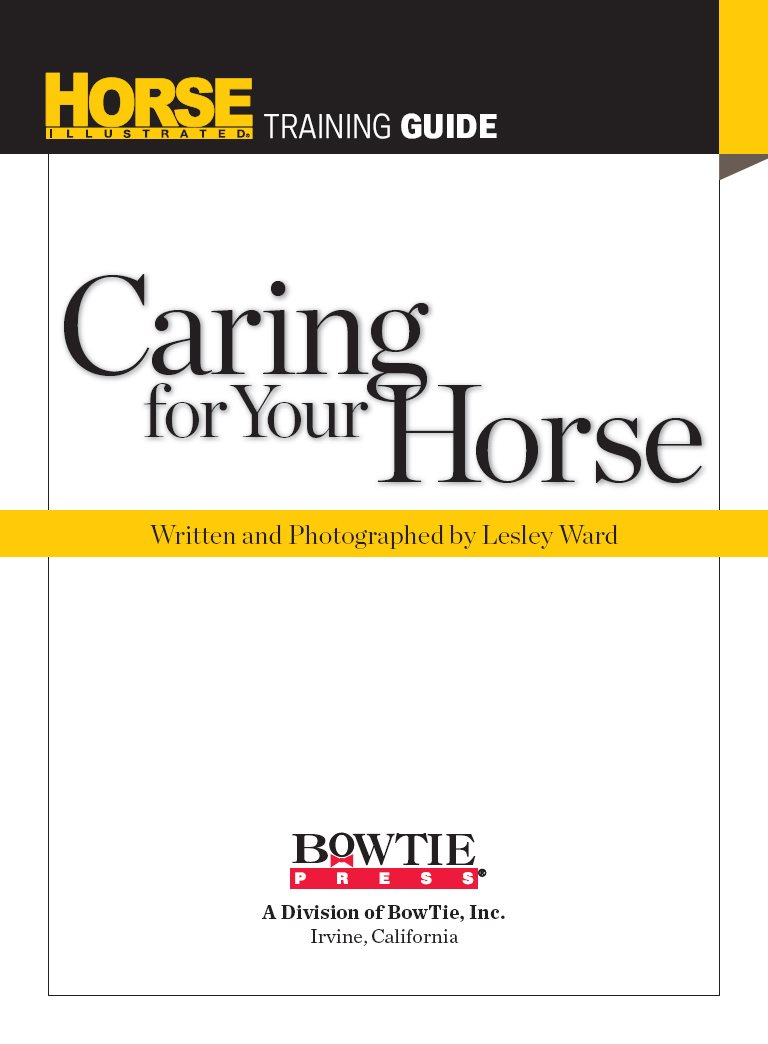
Roger Sipe, Special Projects Editor
Lindsay Hanks, Associate Editor
Matt Hennings, Art Director
Jessica Jaensch, Production Coordinator
June Kikuchi, Andrew DePrisco, Editorial Directors
The horses in this book are referred to as he or she in alternating chapters unless their gender is apparent from the activity discussed.
Text copyright 1998, 2003, 2010 by Lesley Ward. Previously published in different-sized formats in The Horse Illustrated Guide to Caring for Your Horse.
Back Cover photo courtesy of Moira C. Reeve. All other photos by Lesley Ward.
All rights reserved. No part of this book may be reproduced, stored in a retrieval system, or transmitted in any form or by any means, electronic, mechanical, photocopying, recording, or otherwise, without the prior written permission of BowTie Press, except for the inclusion of brief quotations in an acknowledged review.
Library of Congress Cataloging-in-Publication Data
Ward, Lesley.
Caring for your horse / by Lesley Ward.
p. cm.
Previously published as Horse illustrated guide to caring for your horse by Lesley Ward.
Includes bibliographical references.
ISBN 978-1-935484-51-6
eISBN 978-1-937049-38-6
1. Horses. I. Ward, Lesley. Horse illustrated guide to caring for your horse. II. Title.
SF285.3.W37 2010
636.1083--dc22
2010014069
BowTie Press
A Division of BowTie, Inc.
3 Burroughs
Irvine, CA 92618
Printed and bound in the United States
14 13 12 11 10 1 2 3 4 5
acknowledgments
I would like to thank the following people for their help with this book: Kim Abbott; Marian Abe; Sharon Biggs; Jane Butteriss; Marge Fritze; Jane Frusher; Allison Griest; Paula Grimstead; Diane Harkey; Moira C. Harris; Lon Hyers; Kelly James; Denise Justice; Eric Matthews; Julie Mignery; Carol Nelson; Jennifer Nice; Sherry Pascual; Heather Hayes Schram; Jennifer Smith; Annette Slowinski, D.V.M.; Katherine Waldrop; Holly Werner; and finally, my father, Alan Ward, for his excellent editing skills.
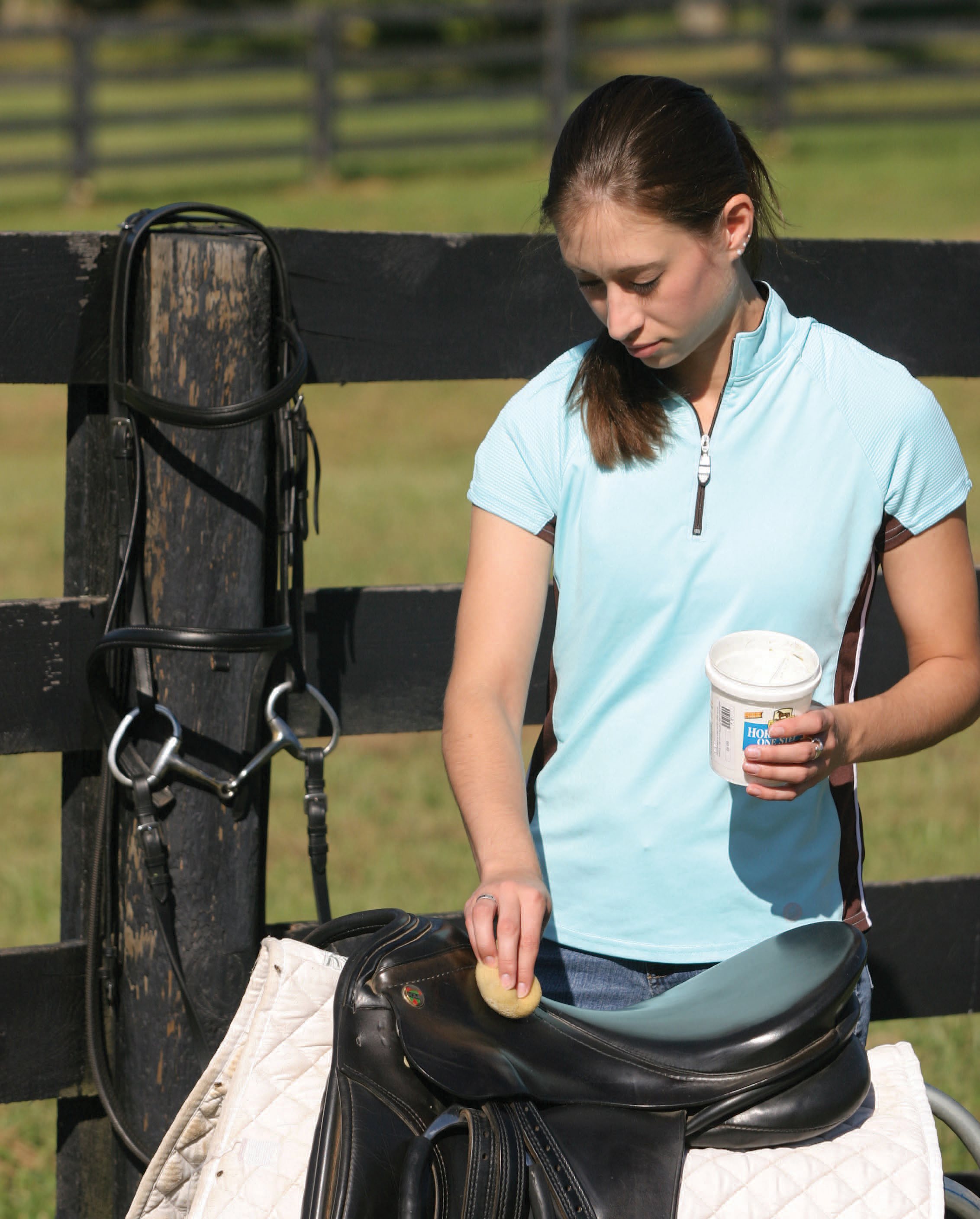
Contents
Understanding Horse Behavior Horse Sense Horse Talk Catching a Horse Turning out a Horse Leading a Horse in a Halter Leading Problems Tying up a Horse
The Pasture-Kept Horse Routine Pasture Checks Paddocks Stables and Stalls Stable Vices
Feeding Rules Food to Feed a Horse Vitamins and Supplements Treats
Taking Your Horses Temperature Health Problems Regular Veterinary Checkups First Aid Modern Health Therapies
Grooming Kit Get Grooming! Bath Time Farewell to Flies Hoof Care The Farrier
The Halter The Bridle Reins Bits Curb Bits Hackamores Nosebands Breastplate or Western Breast Collar The Saddle Saddle-Related Tack Boots and Bandages Blankets
Carrying Tack Tacking Up English Style Tacking Up Western Style Does Your Tack Fit? Untacking English Style Untacking Western Style Cleaning Your Tack
What Kind of Trailer Do You Need? Looking for a Trailer Traveling Gear Loading a Horse Driving a Trailer Unloading a Horse A Caring Relationship
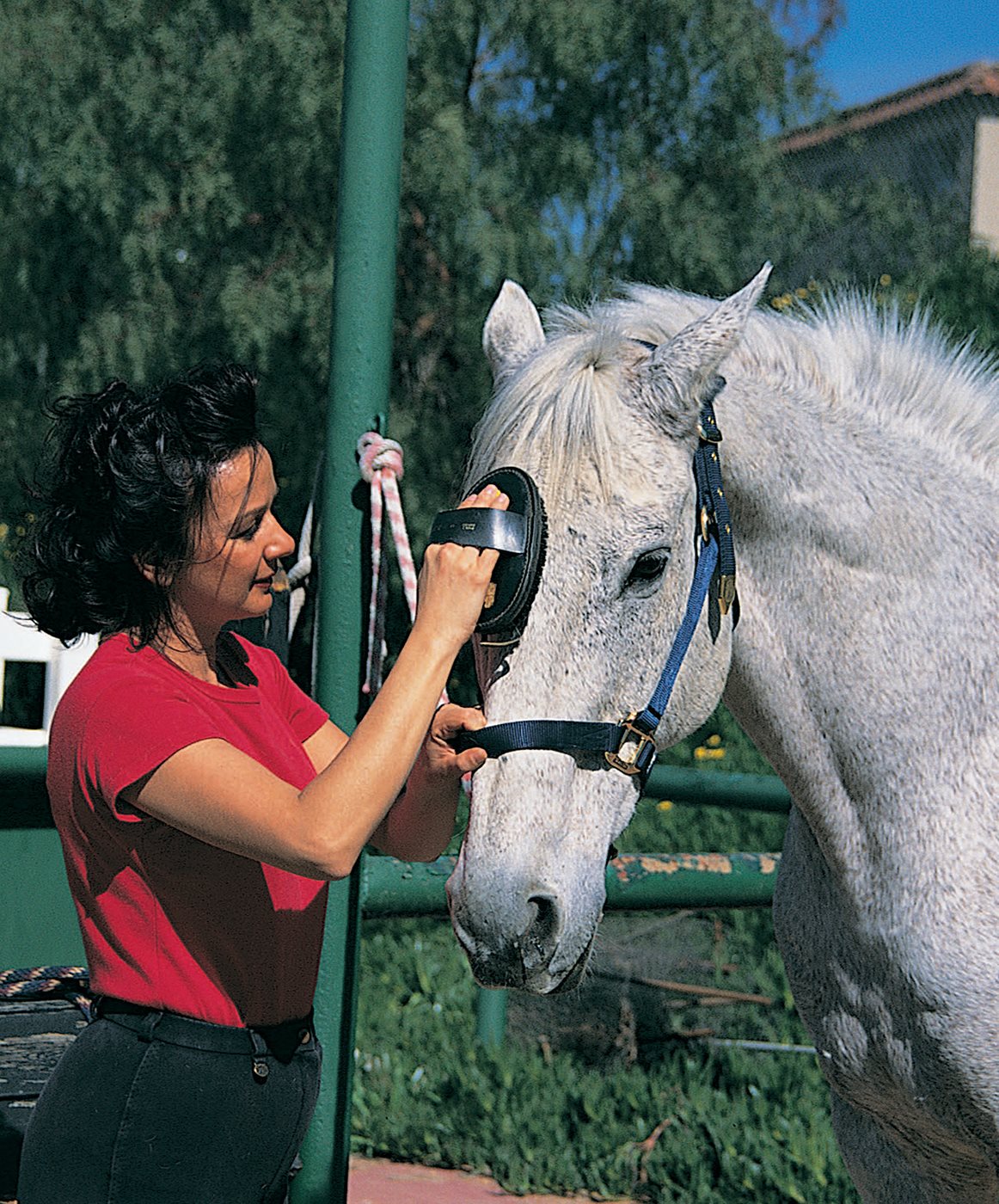
Introduction
Y ouve finally found the horse of your dreams. Hes passed the vet exam, youve paid for him, and youve taken him home. Now the fun truly begins. Your new horse is going to need a lot of your time, and it is up to you to keep him healthy and happy. The way he looks and feels largely depends on the way you care for him, so you should do it right.
This book describes the basics of horse care and management: important information that every horse owner needs to know. Youll learn how to handle your horse and make his new home a comfortable and safe place. Youll also learn about grooming, feeding, and tacking up. This book is full of tips to keep your horse healthy and in tip-top shape. Youll know if your horse isnt feeling 100 percent and what to do if he gets injured.
Owning a horse is a major responsibility. Even if your horse is kept at a boarding facility and others do most of the work for you, it is in your best interest to know as much as you can about horse health and stable management.
Nobody truly cares about your horse or has your investment in his well-being as much as you do. Even at the best barns, illnesses are missed and injuries are overlooked. You need to be familiar with your horse from head to hoof.
Taking care of a horse can be a lot of work, but the rewards are great. A horse who is properly cared for has a lot of energy and is fun to ride. If he eats the right diet and is groomed on a regular basis, hell look great and youll be proud of himwhether competing at a show or simply walking him around the barn. Looking after a living, breathing, occasionally unpredictable 1,000-pound-plus animal can be a challenge at times, but this book will prepare you for the task.
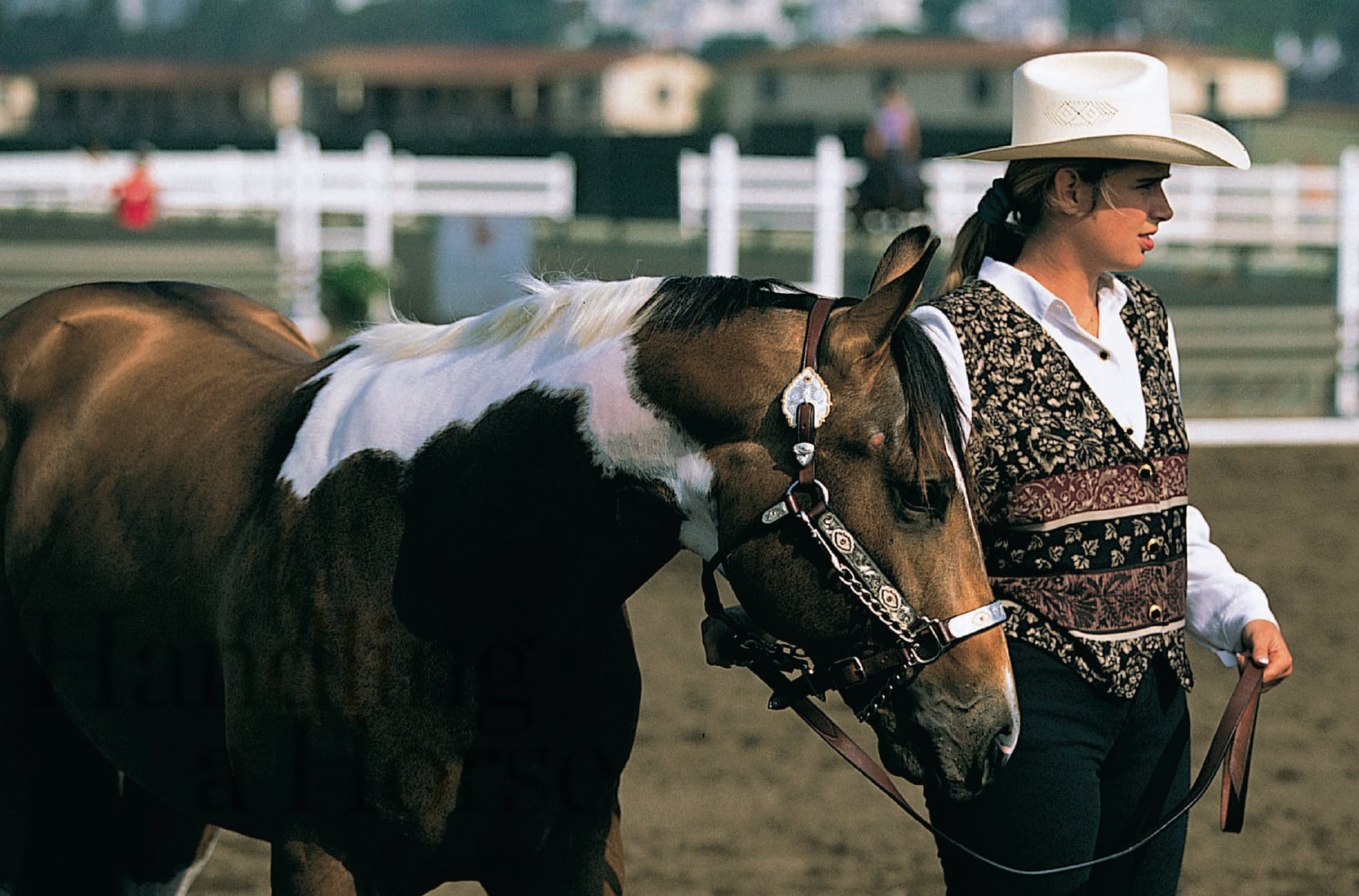

Handling a Horse
I f youve been taking regular riding lessons, you already have had some handling experience. Handling describes the activities you do with a horse while on the ground such as catching him, leading him, and working around him.
Its very important to learn correct handling for your own safety. Horses can be unpredictable, and even the quietest, most sensible horse can spook and run off. When a horse is upset, he will step on you or knock you over without a thought because his instinct is to escape whatever is upsetting him. This is why you should always be aware when youre around a horse. Almost anything could happen.
Understanding Horse Behavior
Understanding horse behavior helps you know how to react if your horse acts badly or does something that seems strange. Here are a few things to consider:
Horses, by nature, are herd creatures. They like to be in the company of other horses. This behavior dates back thousands of years to when your horses ancestors lived in the wild. It was much safer for them to live in a herd because a solitary horse was more likely to get attacked and eaten by a predator. Some horses are hard to catch when out in a field because they dont want to leave their herdmates. Similarly, if you are riding a horse in company, he may be reluctant to go away from his buddies.
Horses would rather run than fight. Their primary defense is running, which is why they spook or shy (jump or run away from scary objects) so much. If they spot something they think is dangerous, their natural reaction is to run away from it: a response that may have helped them survive for millions of years. Remember this when your horse reacts violently to a flapping garbage bag or an unusual noise. His first reaction may be to get away from it fast. Try not to punish this behavior, as it is only natural.
Horses take their cues from other horses. If one horse becomes antsy in the warm-up arena at a show for example, it is likely that others will catch on and act badly too. If one horse wont be caught in a field, others also may be difficult to catch.
Horses have remarkable memories. This can be good and bad. A good memory is a plus when you teach a horse a new task and he remembers it the next time. But if he has a bad experience, such as a terrible ride in a trailer or a painful visit with the veterinarian, he will remember it for years.
Next pageFont size:
Interval:
Bookmark:
Similar books «Caring for Your Horse»
Look at similar books to Caring for Your Horse. We have selected literature similar in name and meaning in the hope of providing readers with more options to find new, interesting, not yet read works.
Discussion, reviews of the book Caring for Your Horse and just readers' own opinions. Leave your comments, write what you think about the work, its meaning or the main characters. Specify what exactly you liked and what you didn't like, and why you think so.



